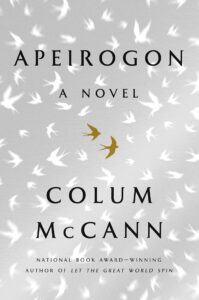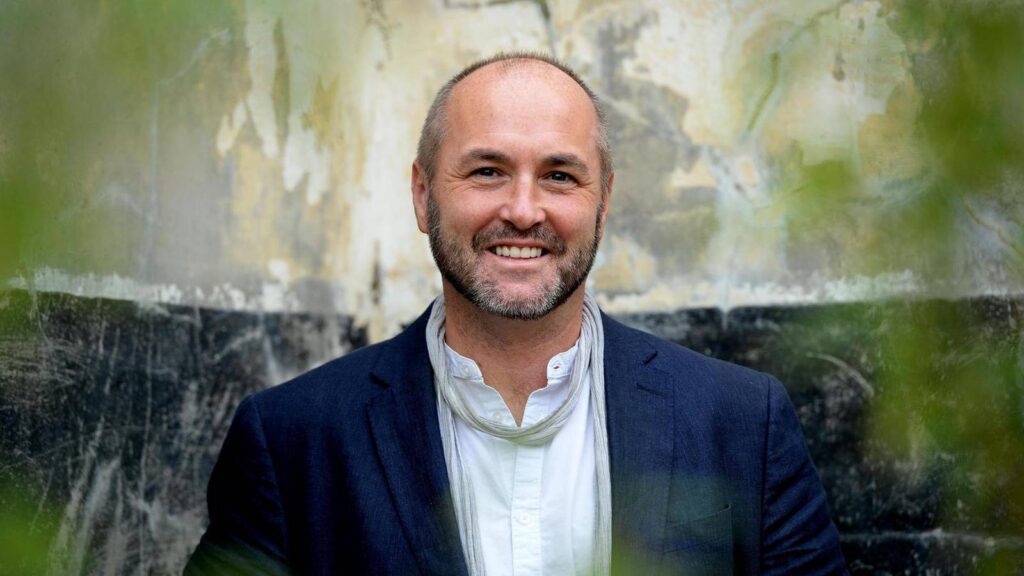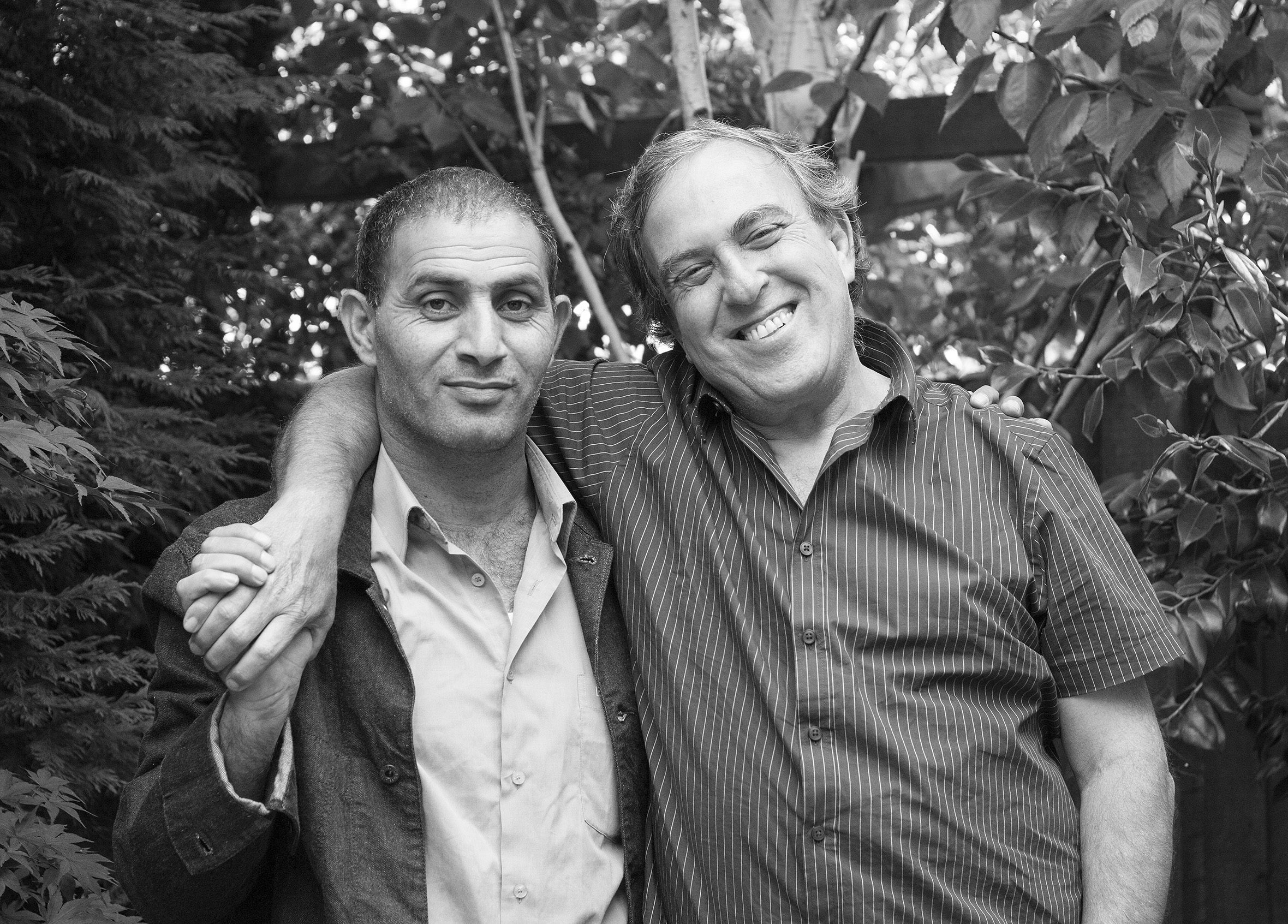Generation Black TV - Live
Apeirogon by Colum McCann Book Review: Healing Grief With Peace
Colum McCann’s Apeirogon tells the story of two friends brought together by tragedy
Bassam Aramin and Rami Elhanan, the main characters in Colum McCann’s Apeirogon, are atypical friends. Geographically, they live on land that has seen no rest for decades; politically, they’re supposed to hate each other. Bassam is Palestinian, Rami is Israeli and, apparently, they’re two incomparable persons. Before meeting, they had two totally different lives, with little to nothing in common. Rami had briefly served in the army before pursuing a successful career in graphic design, he got married, had children and lead a quite ordinary bourgeoisie life. On the other hand, Bassam was evicted from his childhood house by Israeli soldiers, spent 7 years in prison for throwing a couple of dodgy grenades at them, witnessed all sorts of abuse, injustice and corruption, then founded the Combatants for Peace organisation, started his own family and dedicated himself to prevent his children from going through what he experienced in his youth.
The Israeli occupation of Palestine has influenced every aspect of their lives in different ways, keeping them apart until tragedy occurs in 1997, Rami’s 13-years-old daughter Smadar is killed in a suicidal attack by three young Palestinians on a busy street in the centre. Ten years later, in 2007, Bassam’s 10-years-old daughter Abir is shot while standing outside of her school by an 18-years-old Israeli soldier. The death of a child is probably the worst nightmare of every parent, an event that opens up to deep grief and confusion. And, if the passing is caused by someone else, revenge. But the two fathers, instead of perpetuating the cycle of violence, decide to cope with their pain by exercising empathy, dialogue and compassion: they join Parents Circle – an association for grieving relatives of young Palestinian and Israeli victims – and organise conferences around the world to talk about their experiences and the peaceful path they decided to pursue.

Apeirogon Book Cover © Colum McCann
Their story is told beautifully by Irish writer Colum McCann in his latest novel Apeirogon: as the homonymous polygon with an infinite amount of sides, Bassam and Rami’s experiences are part of a broader picture, where history and politics intertwine. McCann shows once again his excellent ability to create detailed narratives joining past and present, public and private, fiction and non-fiction, light and darkness; he describes with surgical precision landscapes, actions and feelings, enabling the reader to imagine vivid scenarios, emphasise with the characters and have a better understanding of the story. Just as he showed in two of his most notable works, Let the great world spin and Transatlantic, McCann masterfully repeats in Apeirogon one of the defining characteristics of his writing: he builds complex patterns travelling through space and time, unveiling the coherence of these apparently incompatible elements one chapter at a time as if to show that life is the sum of connections and coincidences that slip away from our control.
Another important aspect to point out is the neutrality that McCann maintains throughout the book. His writing is meticulous and honest at the same time, and this allows the truth to emerge spontaneously. He describes with brutal objectivity the reality of the Palestinians that have to live every day with the humiliations of check-point inspections, the denial of their own identity and the death of their loved ones; by comparison, Israel’s Western-like ‘normality’ and obsession with ‘security’ feels as absurd and sickening as ever. Rami and his wife Nurit themselves strongly condemn their government as responsible for the death of their daughter, as the occupation of Palestine pushes its people to desperate and extreme actions; at the same time, Bassam’s court battle to obtain justice for Abir shows the twisted attempts of the Israeli authorities to manipulate events in their favour and to protect killers, revealing how absent their consideration for Palestinian lives is.

Colum McCann © Cyril Byrne
Apeirogon is a book that attracted some criticism too: Palestinian writer Susan Abulhawa accused it of being a “colonialist misstep” which waters down the whole story as a “’complicated conflict’ between two equal sides”. While many respect her opinion, many supporters of Palestine’s cause also recognise the truthfulness that McCann adheres to as closely as possible. Furthermore, not only did he personally meet Bassam and Rami and visit the locations where the story takes place, but he uses his superb narrative skills to give voice to two extraordinary men whose chronicles are worth knowing. Here, McCann’s objectivity and attention to detail let the facts speak for themselves.
Apeirogon is not only the tale of a land, it’s not just the account of its history, above all it’s about a strong, endearing, inspiring friendship. It’s not the task of a book to draw conclusions nor to provide a solution to conflicts, occupations and apartheid. But it certainly offers readers a better understanding of the situation and provides the tools to encourage a search for more information. And, if a book manages that, its job is done.


